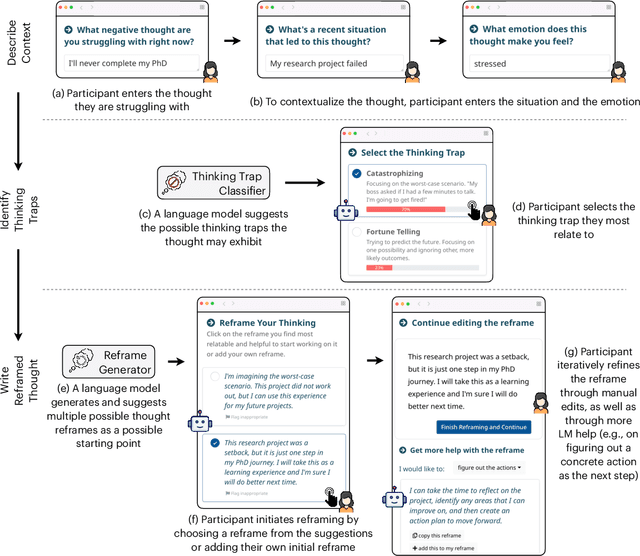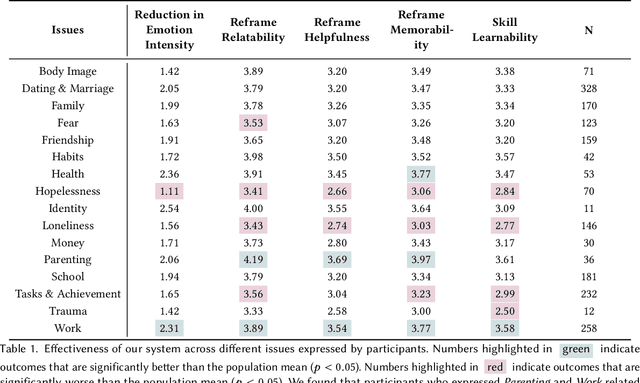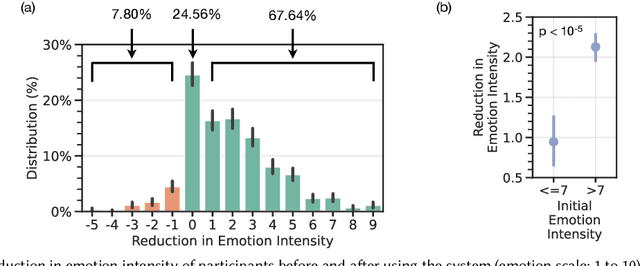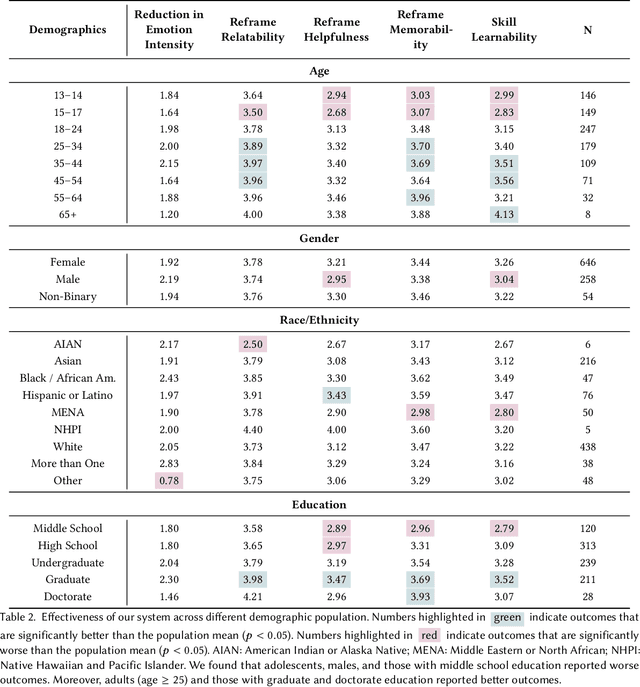Facilitating Self-Guided Mental Health Interventions Through Human-Language Model Interaction: A Case Study of Cognitive Restructuring
Paper and Code
Oct 24, 2023



Self-guided mental health interventions, such as "do-it-yourself" tools to learn and practice coping strategies, show great promise to improve access to mental health care. However, these interventions are often cognitively demanding and emotionally triggering, creating accessibility barriers that limit their wide-scale implementation and adoption. In this paper, we study how human-language model interaction can support self-guided mental health interventions. We take cognitive restructuring, an evidence-based therapeutic technique to overcome negative thinking, as a case study. In an IRB-approved randomized field study on a large mental health website with 15,531 participants, we design and evaluate a system that uses language models to support people through various steps of cognitive restructuring. Our findings reveal that our system positively impacts emotional intensity for 67% of participants and helps 65% overcome negative thoughts. Although adolescents report relatively worse outcomes, we find that tailored interventions that simplify language model generations improve overall effectiveness and equity.
 Add to Chrome
Add to Chrome Add to Firefox
Add to Firefox Add to Edge
Add to Edge